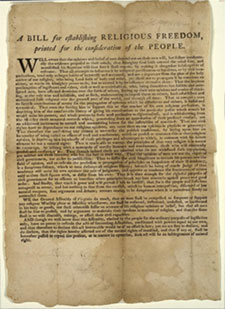I introduced my blog with the caveat that I might write on any subject at all, but particularly one that circled without disbanding. Recently, I have had some theological questions that have circled but not disbanded. I hope this doesn’t ‘run off’ readers who might have expected something different – but variance is the whole point. I write this month’s offering from London where I have just celebrated the festivities surrounding Navroz. The spring equinox, celebrated as New Year by over two billion people across the globe, is attributable in origin to life in Achaemenid Persia. How completely sensible it seems to celebrate the birth of the new year in the spring time, when a change in climate and natural evidence supports it. Current changes in world climate might make a nonsense of that statement – but that’s another blog, another time.
I am drawn to think of all the other ‘bits and pieces’ that we hold on to – whether through long held tradition; or views forced by ecclesiastical umbrage; or just our indifference – which may not be as sensible. Some friends have asked why I would take up anything as controversial as religion. Others have wondered why I would ‘waste their time’ with it. I hope there will be sufficient interest to satisfy at least a single read, but my reasons are not of my choosing. Recently, we are all beset by strong ideological forces that threaten everything not aligned with their own view. This must be met headlong with critical freedom, critical enquiry and individual humanism. Unfortunately, this is no longer an academic issue, relegated to comfortable arm chairs and endless glasses of sherry. There are far too many people who would, but are forbidden to speak freely on matters of religion. This March edition of my blog is for them, or at least in solidarity with them.
Zoroastrianism is the religion to which I was born, but that – in itself – is insufficient. On further examination, the view from a Zoroastrian lens allows me to touch on related points that concern us all. I recently had the opportunity to speak at the North American Zoroastrian Congress in Los Angeles, in December 2014. Some may take that as an indication that I came full of personal religious fervour to testify like an Old Testament prophet. I don’t have the right temperament for that –nor the robe, staff and beard. Rather, I wanted to set up a rational state of humanism and enquiry in the minds of as many as would listen. I drew parallels between the Meditative Hymns of Zarathustra and the 1777 Virginia Statute for Religious Freedom penned by Thomas Jefferson. I wanted to demonstrate the similarity between the deist, humanist position of Jefferson and the similarly deist, humanist position of Zarathustra. I didn’t say it then, but on reflection feel bound to write it now. It may seem like a contradiction but Zarathustra’s revelatory message is more allied to the position of Jefferson, Paine or Spinoza when he hands down free choice, individual expression and a humanist philosophy of righteousness. Spinoza also talked of a God of ‘infinite intellect’ from whose very nature a divine order governed the universe. This view finds strong parallels in Zoroastrianism. Also- and perhaps most importantly – this God was not a supervising, meddling deity. Spinoza and Zarathustra are fashionably and originally at odds with the other revealed monotheistic traditions. They are both – in effect – modern atheists! This is a good thing! No, no …give me a chance to explain.
The atheist position, is usually “not that there is no God, but rather that there is no reason or evidence to suggest that there is.” However, the God usually disbelieved by atheists is the supervising school master bringing forth a ‘liber scriptus…in quo totum continetur’ – checking-off a roll call on daily conduct, eating habits, many other socially invasive issues and – perhaps worst of all – convicting followers of merely thinking the wrong thing. These controlling pronouncements, under threat of eternal punishment, are long suspected of being manmade. Modern Zoroastrians have to square with this issue as well. Even though the original brand of Zoroastrianism sets up a meditative connection between deity and man and might be considered theist on face value, it grants a leeway that is much more generous and expansive– more a philosophy of life than a religion. This philosophy is more deist than theist, more liberal than controlling and more enquiring than dogmatic. The first and constant position in Zoroastrianism is freedom of thought, word and deed. Yes, we’re powerfully enjoined to be good, but we are released from the idea of daily supervision. This point is completely lost on some of my co-religionists.
The inconsistencies of theistic control are present in the later Zoroastrian canon in the same way that they are introduced everywhere else. Powerful and controlling forces ratify their own opinions, constructed of ‘whole cloth’, and then exercise the sole right of interpretation so that it is deemed a sin to question or contradict. It’s a dangerous but all too familiar construct. It is also the only survival technique left to the theist position. I would venture from my understanding of the teachings of Zarathustra that he took the deist position and would have supported the atheist position against the manmade ‘shackle’ of a supervising deity. It is entirely possible for the two views to coexist.
I am personally drawn to the idea of a numinous force –not necessarily the deist position that there may be a ‘prime mover’ or ‘proximate cause’ for the known universe. I’m also completely comfortable with an unexplained reason for the numinous without relegating it to a ‘God of the Gaps’ argument. If God exists then He probably deserves better than shrinking irrelevance as science advances. There must be some consistent numinous transcendence and I’m drawn to the belief that there is. There are some extraordinary moments on the platform in live music making with an orchestra, where the transport is numinous and an unexplained power, greater than the sum of its parts, is at work. It would be callous to have witnessed it and ignore it at the same time. I’m sure that some of my musician colleagues, who may have had similar experiences, would agree wholeheartedly. But at no time does that get in the way, deny, restrict or destroy creative individual expression or the search for truth.
 This marvelous excerpt from the Virginia Statute for Religious Freedom is ‘worth its weight’. Whilst full of promise, it also requires full and participating responsibility in equal measure.
This marvelous excerpt from the Virginia Statute for Religious Freedom is ‘worth its weight’. Whilst full of promise, it also requires full and participating responsibility in equal measure.
‘And finally, that Truth is great, and will prevail if left to herself, that she is the proper and sufficient antagonist to error, and has nothing to fear from the conflict, unless by human interposition disarmed of her natural weapons, free argument and debate;errors ceasing to be dangerous when it is permitted freely to contradict them:’
Many Thanks!








